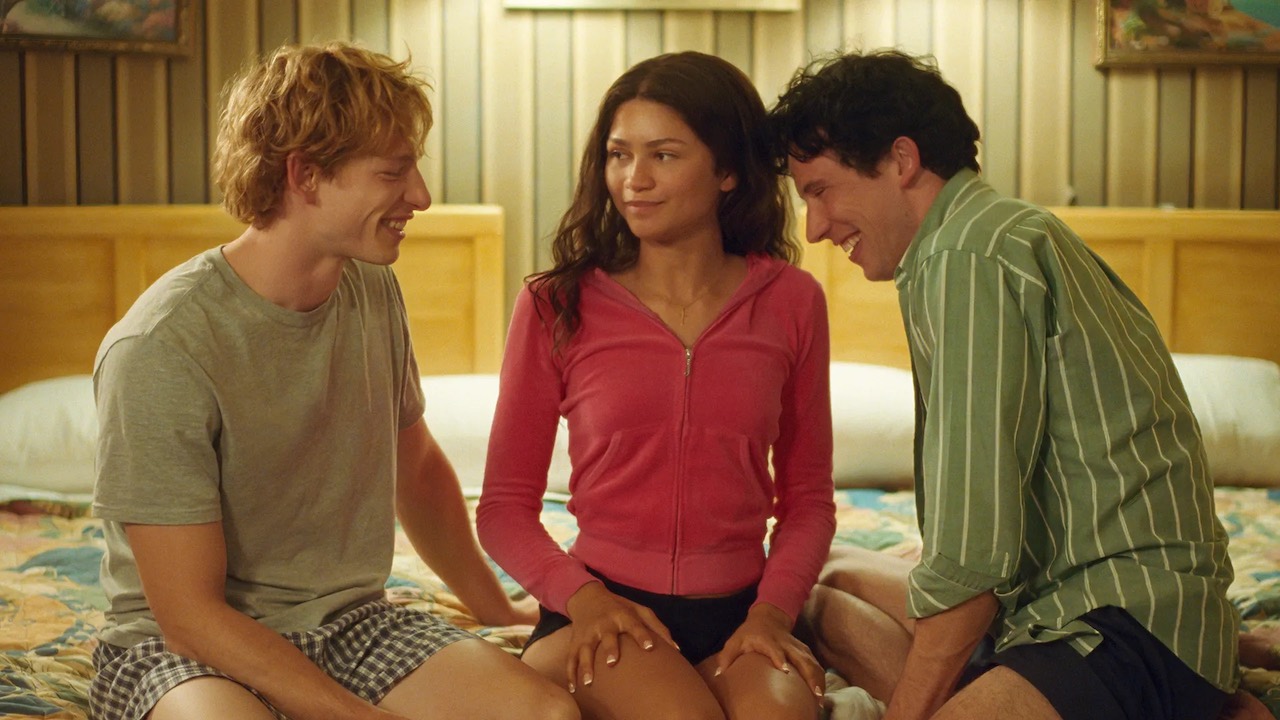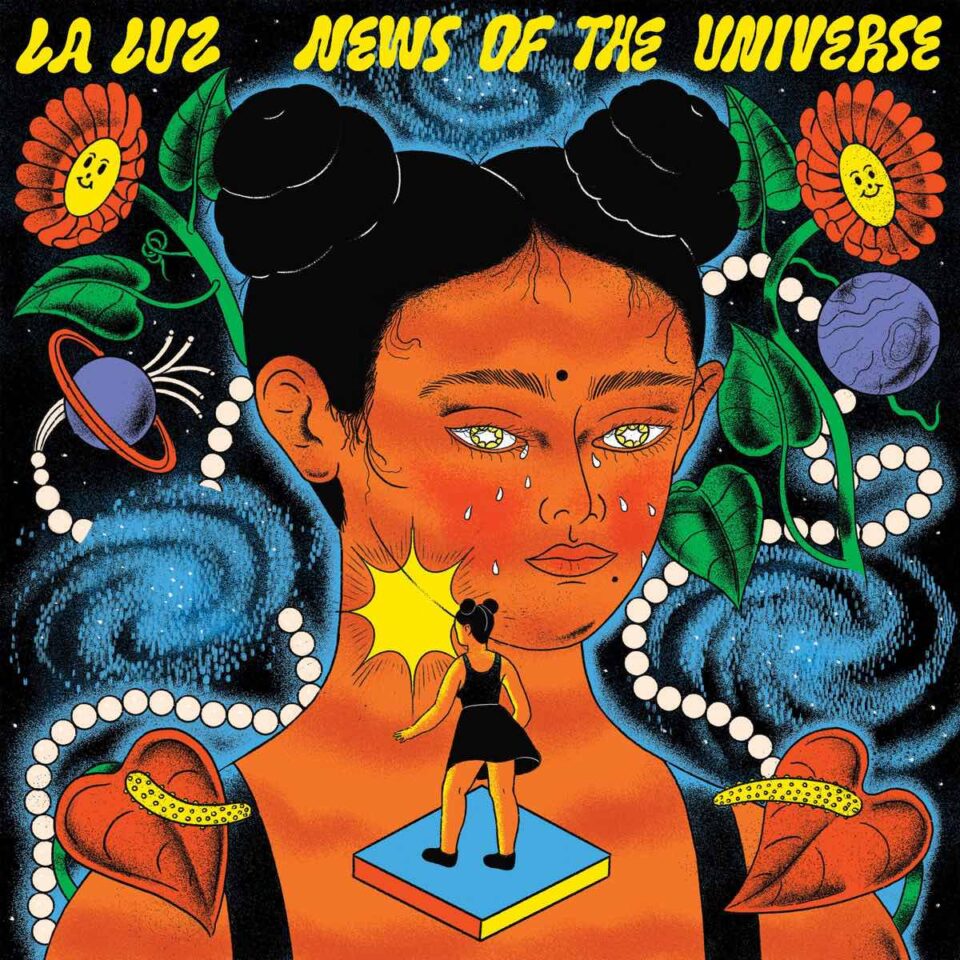There’s a moment about halfway through Luca Guadagnino’s 2022 cannibal love story Bones and All where consummate character actor Michael Stuhlbarg solidifies himself as the emotional fulcrum of the Italian director’s wide and varied filmography. “You remind me of every junkie I ever met—you look like the kind that’s convinced himself he’s got this under his thumb,” he says to a brooding, red-haired, flesh-eating Timothée Chalamet, a wry smile of incredulity on his face. “But maybe love will set you free, man. Maybe love will set you free.”
In many ways, it’s a complete reversal of the last time Stuhlbarg knowingly advised a prone, sullen, and angsty Chalamet in a Guadagnino film, at the conclusion of 2017’s Call Me by Your Name. “Just remember, our hearts and our bodies are given to us only once, and before you know it your heart’s worn out; and, as for your body, there comes a point when no one looks at it, much less wants to come near it.” On the one side there’s the skeptic, the man who seems to know that love won’t save this lonely drifter, poking holes in the idea that it’s necessary—or even preferable—to live in solitude, flippant about its ability to stave off the inevitable. On the other is the romantic, given to fits of dreamy sentimentality, admonishing his son for stamping out the flame before its time, for looking askance at the emotional damage wrought by love and desire. One is saying it’s worth it, the other questioning its worth.
Herein lies the nucleus of Guadagnino’s increasingly fascinating and scintillating filmography. As you may have heard by now, the love at the center of Guadagnino’s newest film, Challengers, is very much a three-headed monster, each embracing a bit of what we’ve seen the director explore in the past. The film is undeniably sexy, propulsive, and decisive in the way it explores the decades-long lust triangle between Tashi (Zendaya), Patrick (Josh O’Connor), and Art (Mike Faist), funneling almost every moment through a prism of desire, devotion, and power.
Patrick, perhaps the most engaging of the three, thanks in no small part to O’Connor’s winning performance, takes a decidedly hedonistic approach to the matter, consuming everything in his path with vigor and embracing his own depravity like he does a particularly photogenic Dunkin’ breakfast sandwich. Tashi is more staid, her life a series of triumphant wins or losses she’ll quickly manipulate into victories. Like Patrick, she believes that though love may not set her free, it will never constrain her. Art, bless his soul, is all too willing to live within love’s borders, if someone—anyone—will allow it. To Art, love is devotion, his willingness to put heart and body on the line again and again for love, with tennis serving as proof of his intent. By the end of the film, the question of who belongs together is overtaken by the question of whether sorting through all this refracted desire, ambition, and damage can possibly be worth it, the perpetual tiebreaker overtaking the hope for discernible winners and losers.
This is true of most of Guadagnino’s films, which rarely leave their protagonists in a state of contentment. His 2009 breakout I Am Love, starring the always magnetic early Guadagnino muse Tilda Swinton, is all about the nagging itch of restlessness. In the first half of the movie, the filmmaker makes the cravings experienced by Swinton’s Emma our own, luxuriating in forbidden indulgence, only to level a punishment that feels as swift as it is severe. This punishment is mirrored in his 2015 follow-up, a film that revolves around a love square of sorts and ends just as untethered. A Bigger Splash is, in many ways, a direct antecedent to Challengers, even if most of its characters find themselves at a much different point in their lives. Like his newest film, the characters here are all either fucking, wanting to fuck, or have recently fucked—but unlike Challengers, it’s rarely so explicitly sexy, their desire curdled to the point where it all feels a little hollow and pathetic.
Cigarettes, churros, hot dogs, and racket handles all become stand-ins for exactly what you think, the psychoanalysis as flimsy as the shorts barely covering perfectly crafted thighs.
Elsewhere, Guadagnino treats illicitness as a foundational principle of desire itself when his Swinton-led films give way to Chalamet leads—a jump that makes sense when you consider the angular, withholding energy both actors bring to the screen. Guadagnino has called Call Me by Your Name the final film of a trilogy that began with I Am Love, but it’s often much more sentimental in its view of love than anything else he’s made. Chalamet’s Elio is insecure, hesitant, and stunted, but his ability to put a name to his yearning is delicately handled, and Guadagnino never tips into cynicism even as his love story, as it were, reaches its inevitable conclusion. Bones and All is clearly a different beast, the forbidden fruit here losing any moral ambiguity.
As early as I Am Love, Guadagnino has always linked consumption to desire, in that film taking this idea to its logical endpoint and seemingly delighting in how far he can push the envelope. If anything, this ultimately works against what he does best as a filmmaker, darkening his palette to the point where the contrast, always his most playful and canny trick, is all but completely lost. It’s one of many problems with his ill-conceived remake of Dario Argento’s 1977 film Suspiria. Dark and dour as they are, these aren’t terrible movies by a long shot, but often feel labored in a way that his other films never do. The kinetic body horror and psychological slog of Suspiria and Bones and All might be getting at similar themes as the rest of his filmography, but their desire to tighten the screw on its characters does little to deepen the sentiment.

Timothee Chalamet (left) as Lee and Taylor Russell (right) as Maren in ‘Bones And All,’ directed by Luca Guadagnino
Which is why Challengers is such a welcomed return for Guadagnino, who once again is embracing the buoyant vulnerability of the overly exposed. He’s never been a particularly subtle filmmaker, but Challengers might just be his most unabashed yet. From the opening moments, which see gallons of sweat run down the boyish faces of the pristine male leads, Guadagnino is calling his shot. From then on, almost every scene is bursting with unsubtle vitality and naked innuendo. Cigarettes, churros, hot dogs, and racket handles all become stand-ins for exactly what you think, the psychoanalysis as flimsy as the shorts barely covering perfectly crafted thighs. Nowhere is this audaciousness more apparent than Trent Reznor and Atticus Ross’ undeniable score, which fundamentally changes the tenor of almost every scene in the film. You can add all the everything-is-sex subtext you want, but inserting the club-banger instrumental into moments where characters talk about shoddy serves and devastating knee injuries is a fantastic way to eradicate any ambiguity.
In the world of Challengers, bodies, hearts, sex, desire, love, and tennis all become one throbbing bass line and sweaty match point, the ecstasy both all-important and inevitably disappointing, sharpening Guadignino’s double-edged sword of desire to its sharpest point yet. FL









